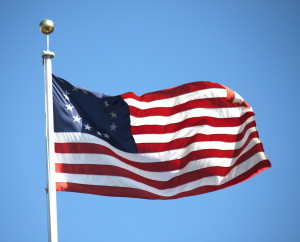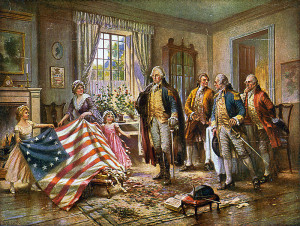The 1st 2016 Republican Primary Presidential Debate – Jeb Who?
Friday, August 07, 2015 by Jonathan R. Gibbons inOverall, the moderators and the establishment candidates clearly focused on Donald Trump and Jeb Bush. This appeared to be a giant indiscreet rub for Bush, or Jeb, as they’d like us to perceive. Additionally, there were too many candidates on stage and not enough time to hear from each of them, hence there was very little in-depth discussion of the issues and very few issues were brought up. This will improve as the campaign progresses and more candidates drop out/drop in the polls.
Marco Rubio (*Winner): He’s my current U.S. Senator and I cannot stand him, but the guy is a phenomenal public speaker and he probably won over a great deal of the audience. He made a strong case for being the poor/middle class candidate of the Republican Party. He outperformed all of the other candidates on the stage and I think he is the clear winner from a mere presentational point of view. It’s too bad his position on a variety of fundamental issues are authoritarian.
I’ll never support him, but he clearly won this debate.
Donald Trump: The Good – He came off as a fed up billionaire who understands the bought and paid for system in Washington and wants to change it. He had a reasonable answer on healthcare by stating that he wants to free up the market, cutout loopholes, and improve competition; then he’d worry about providing for those who cannot afford care within the improved market. He was forthright about possibly running a third party challenge. I enjoyed his response to this mud slung at him, and Rand Paul’s rebuttal was terrible and he sounded like an establishment puppet; he’s no Ron Paul. The Bad – He certainly speaks what he thinks is the truth but he has no sense of credibility. He makes wildly unsupported claims such as, “The super-majority of illegal immigrants are rapists.” This isn’t even remotely statistically accurate. His reasoning for supporting so many liberal positions in the past is that he has changed his mind now. Fine, but this simply means you lack a substantive political philosophy to support your positions; he hasn’t done enough homework especially for a man of his age.
He’s growing on me and I understand his appeal.
Rand Paul: The Good – He was forceful and didn’t back down. His defense of his positions on fighting the NSA and broad data mining were excellent. When responding to the ISIS situation, he stole the stage. The Bad – At multiple points he came off smug and combative. His answer to a gay marriage question was weak and simply placated to social conservatives. He stands for the Bill of Rights, that’s great, but he needs to stand for the 14th Amendment as well. The Constitution doesn’t end with the 10th as so many libertarians would like. I understand being against misguided marriage licensing/legal privileges, but his inability to defend the rights of consenting adults, to engage in the same legal contract rights as others, is disappointing. The Bill of Rights isn’t even enforceable against the States without the 14th Amendment (see the Incorporation Doctrine). Paul is on the wrong side of history and civil libertarianism.
He’s starting to lose me, but he’s still my favorite for King.
Chris Christie: The Good – While his solution to the Social Security problem was lousy, he at least fully recognized and explained the issue. The so called trust fund that exists, is backed up entirely by IOU’s. This is factual and indeed a very serious issue. The Bad – He actually used the 911 Tragedy to tout his strength on national security. He did so in a far more despicable way than Rudy Giuliani did. I found this distasteful and desperate. When his failures to improve New Jersey were brought up, he dogged the issues and touted his weak record as well.
He’ll never have my support.
Jeb BUSH: The Good – Bush spoke about his record as Governor of Florida and there was an obvious concerted effort by his peers and himself to distance himself from the Bush legacy. They, as he, referred to him as Jeb. The Bad – He came off extremely weak and nervous at many points throughout the debate. He was unable to form sentences and trailed off appearing feeble and unprepared.
He’ll never have my support.
The Other Contenders:
John Kasich: He should run for the Democratic Party’s nomination.
Ben Carson: He will be dropping out soon.
Ted Cruz: He came off very fake and scripted.
Scott Walker: See Ted Cruz above.
Mike Huckabee: This is his third time running in the Republican Primary and he’s still a Bible thumper, albeit he still has a very respectful and pleasant demeanor. He’ll never win.
Flag Controversies – Enter The Besty Ross Flag – Happy 4th of July!
Saturday, July 04, 2015 by Jonathan R. Gibbons inThe problem with the Confederate flag is that, while it obviously possesses a variety of meanings for different groups and individuals, as a whole, American society has come to view the Confederate flag as a symbol of racism and support for the South’s position favoring the continuation of slavery. Additionally, the Confederate flag is also a symbol of southern heritage, a memorial for southern Americans– the overwhelming majority who were not slave owners –that died in the Civil War, and also a symbol of our American system of government which recognizes a division of power between the federal and state governments. This is why I love the Betsy Ross flag.
The Betsy Ross flag has thirteen stars representing the original thirteen States. Of course the stripes represent the colonies as well, but they tend to symbolize the lost blood and souls of fallen soldiers as well, whereas the stars represent the state governments. Here are three reasons why the Betsy Ross flag is superior to the current American flag:
1. It’s historical, nostalgic, and representative of the core system of government that makes up America: A Constitutional Democratic Republic Federation. It shows greater respect for State autonomy and the original intention of the American Framers.
2. Too many stars decrease the significance of the States and they simply mesh together. This is, ironically, symbolic of the decline of American federalism which has been deconstructing the beauty of the American system of government. This is why having thirteen stars is better. It reemphasizes the importance of America as being not the United STATE of America, but rather the United STATES of America. Okay maybe reason 1 and 2 are the same.
3. What happens if there are ever 87 stars? That will just look cluttered and ugly.
The Betsy Ross flag is superior to both the current American flag and the controversial Confederate flag. Fly it next to the Gadsden (Yellow “Don’t Tread on Me” Snake) flag and that’s some patriotic badassery right there!

Image Source
Racism and Character
Tuesday, April 28, 2015 by Jonathan R. Gibbons inCooler heads prevail because they judge those rioting by their poor character and not by their race. Poor social and economic circumstances such as the absence of two parents and the subsequent poverty that results, combined with an unintentionally-racial war on drugs, has created an atmosphere of poorly educated, deeply impoverished, and chronically incarcerated assholes who hate the police and think their problems stem from their race. Popular media exacerbates the misconception by focusing on race, and so to do those who blame the rioting on race. Just being black or white doesn’t make one a rioter. If you think race dictates one’s character, you’re indeed a racist, for that is the essence of what it means to be such.

Indiana’s Religious Freedom Restoration Act and Social Evolution
Friday, April 03, 2015 by Jonathan R. Gibbons inIndiana’s Religious Freedom Restoration Act (RFRA) (Indiana 119th… 2015) provides a private business owner with a legal defense for discriminating against individuals if it conflicts with their religious beliefs. As Jonathan Cohn of the liberal Huffington Post explains, “The goal is to give business owners a stronger legal defense if they refuse to serve lesbian, […]
Read MoreFire Our “King” – On Why We Should Consider Abolishing The Office of the Presidency
Friday, January 23, 2015 by Jonathan R. Gibbons inIf you are like me and you enjoy studying political philosophy and examining government theory, then you are likely also pet peeved by the onslaught of new “political activists” who come out of hibernation during presidential election season. All of a sudden everyone and their dog is active and cares about politics. They have an […]
Read MoreThe Gender Pay Gap and FCKH8
Saturday, October 25, 2014 by Jonathan R. Gibbons inFCKH8.com released this hysterical, yet poignant, video of young girls cursing while laying out some of the various issues women still face in the United States. You may watch the video below: Legendary Feminist & American Hero, Susan B. Anthony (image credit) Every gender issue that FCKH8 mentions is indeed very real and concerning, but […]
Read MoreIchabod Crane Takes Modern Banking to Task
Thursday, October 16, 2014 by Jonathan R. Gibbons inThe real Col. Ichabod Crane Image Credit Fox’s “Sleepy Hallow” is a creative show which has found a way to incorporate a time traveling American Founding Father who provides hysterical commentary on current American idiocies (i.e. every political science and American history scholar’s wet dream), into a plot based on Washington Irving’s classic short story […]
Read MoreA Proportional Electoral System vs. The Two Party’s
Friday, October 10, 2014 by Jonathan R. Gibbons inThis graphic was found at suffragio.org Tired of Republicans vs. Democrats? One way to severely limit two party dominance in American politics is to implement a proportional electoral system for the U.S. House of Representatives over our current plurality (winner-take-all) electoral system. Currently, whichever candidate gets the mere majority of the votes wins the election. […]
Read MoreThe Decline of American Federalism
Friday, August 15, 2014 by Jonathan R. Gibbons inIntroduction: The Unique American System of Government On October 18, 1787, New York Judge Robert Yates, writing under the pseudonym of Brutus (Ketcham 2003, 269), wrote the following in his first essay arguing against ratification of the United States Constitution (USC, Constitution) drafted at the Constitutional Convention of 1787 (CC): History furnishes no example of […]
Read More




























